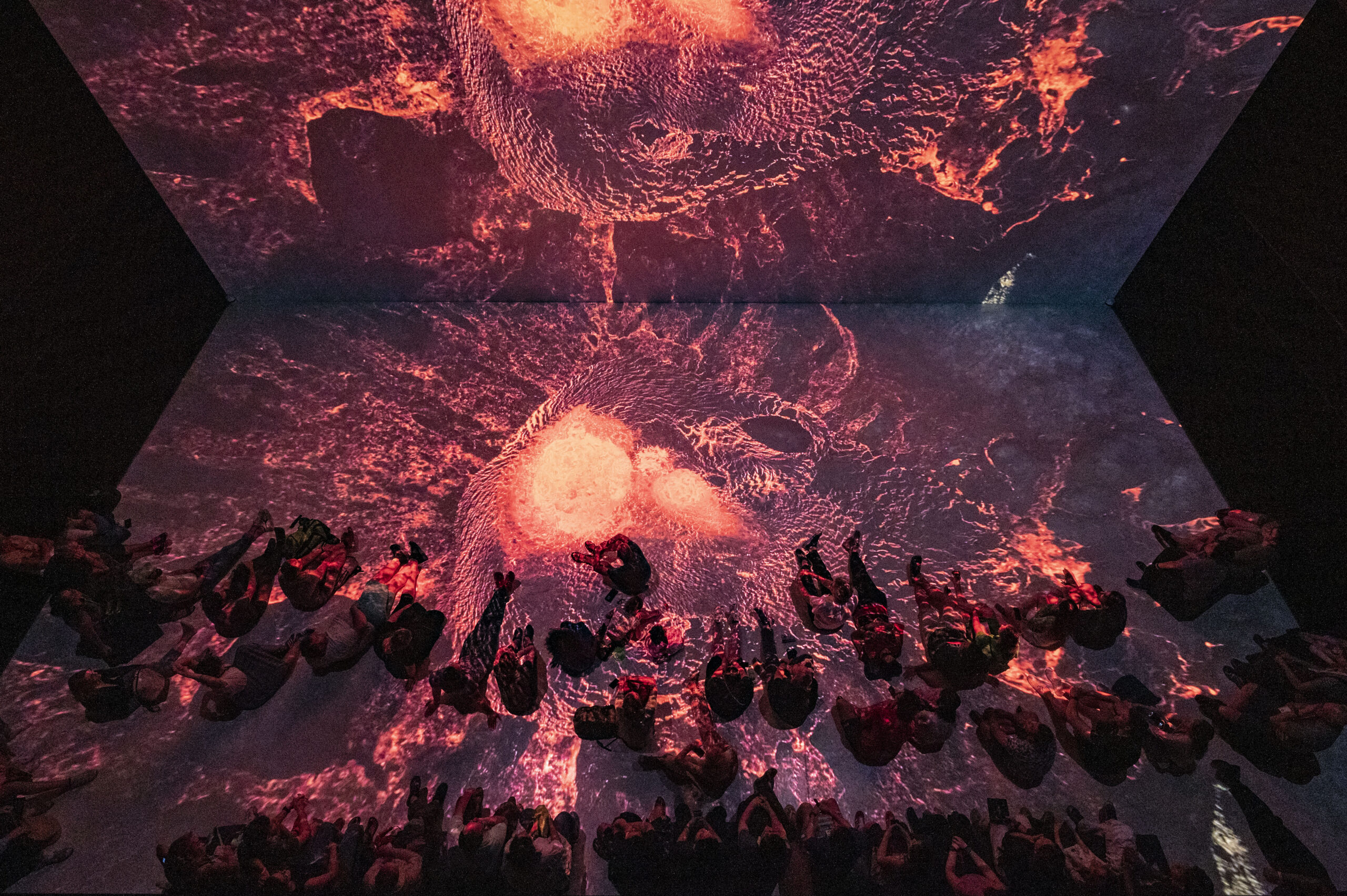- Press release as PDF
- Click here for downloadable high-resolution images and logos
- Find more ressources here
(Linz, Sept. 26, 2023) DOORS – Digital Incubator for Museums – a project initiated by Ars Electronica, Museum Booster, and Ecsite – the European Network for Science Centres & Museums, and funded by Horizon 2020, the EU’s research and innovation funding programme – is coming to an end this September. Its end is, however, only the beginning for the 20 museums launching their digital pilots.
Over the past two years, DOORS has worked towards making a difference in the sector by helping small and medium-sized museums – typically left behind in the race towards digitalization – gain confidence and take their first steps towards becoming digitally mature institutions.
A two-stage incubator initially onboarded 40 museums in a capacity-building programme and subsequently, selected 20 of them to go through the implementation of digital pilots. Besides the incubation programme, the project also had a prominent research component intended to contribute to the sector’s collective knowledge.
Digital Journeys at the Start
The primary legacy of the project, as well as a testimony to the innovation potential and resilience of the sector, and especially small or medium-sized museums, is a diverse range of digital pilots.
The Neanderthal Museum (DE), IMPAKT [Centre for Media Culture] (NL), and The Royal Museum of Mariemont (BE) took deep dives into audience analysis developing segmentation models, personalised user journeys, or innovative ways to engage and retain visitors.
Muzeon – Storytelling Jewish History Museum (RO), The Museum of Urban Wooden Architecture (LT), and the Museum of Literature Ireland (IE) test new revenue models. At the same time, The Association of Uräjärvi Mansion´s Friends (FI), The Natural History Museum and Botanical Garden of the University of Tartu (EE), and the Istanbul Dialogue Museum (TR) reimagine digital collections and archives with inclusivity and broader audience outreach at the heart of it.
As the Computer History Museum (SI) and Terra Sancta Museum (IL) integrate gaming into the museum experience, The Regional Museum Goriški Muzej (SI), Museo Civico Vignola Augusta Redorici Roffi (IT), Arboretum Volcji Potok (SI) bring the museum experience outdoors. The National Museum of Maps and Old Books (RO), the Museum of the Working World (AT), and The Estonian War Museum (EE) place young audiences in focus.
Finally, Kaiser Franz Josef Museum Baden (AT), Alonissos Museum of K.& A. Mavriki (GR), and St Ives Museum (UK) developed visions for a connected museum sector with shared knowledge and tools.
The incubation period was dedicated to refining, iterating, and reflecting on the impact of the digital pilots alongside partners from the tech and creative sectors. Now, the real journey of maintenance, adaptation, and scaling begins for the 20 museums.
To celebrate the launch of the pilots, DOORS – Digital Incubator for Museums will host a final online event on the 29th of September from 10 am – 1 pm CET. The event will include presentations from each museum, followed by Q&A sessions.
The registration link and the agenda for the event are available here.
The Research Outputs
The end of DOORS – Digital Incubator for Museums, also coincides with the publication of a series of resources that share learnings and findings from the team’s research and the incubation programme’s implementation. The uniqueness of these outputs lies in their focus on small and medium-sized museums, which face particular challenges and remain under-researched to date.
The final e-publication, Breaking the Digital Ceiling, is the story of the design and implementation of DOORS – Digital Incubator for Museums, the lessons learned, and the hopes for the future. The publication includes articles by Andrea Bandelli, Julia Pagel (NEMO – The Network of European Museum Organisations), Merete Sanderhoff (SMK – National Gallery of Denmark), Lauren Vargas (Your Digital Tattoo), and Maaike Verberk (DEN).
The Self-Reflection Tool is a playful, collaborative approach to the daunting process of reflecting on an institution’s digital maturity. The Exploitation Strategy summarizes how the outcomes of DOORS have been and might be used in the future. The Incubation Strategy follows the reasoning and decision-making behind the incubation programme.
At the end of this month, part two of the Sparkle Report will also be published, featuring the inspiring cases of the 20 museums that launched digital pilot projects following the DOORS incubation programme.
All resources can be accessed here.
This project has received funding from the European Union’s Horizon 2020 research and innovation programme under grant agreement No 101036071.
